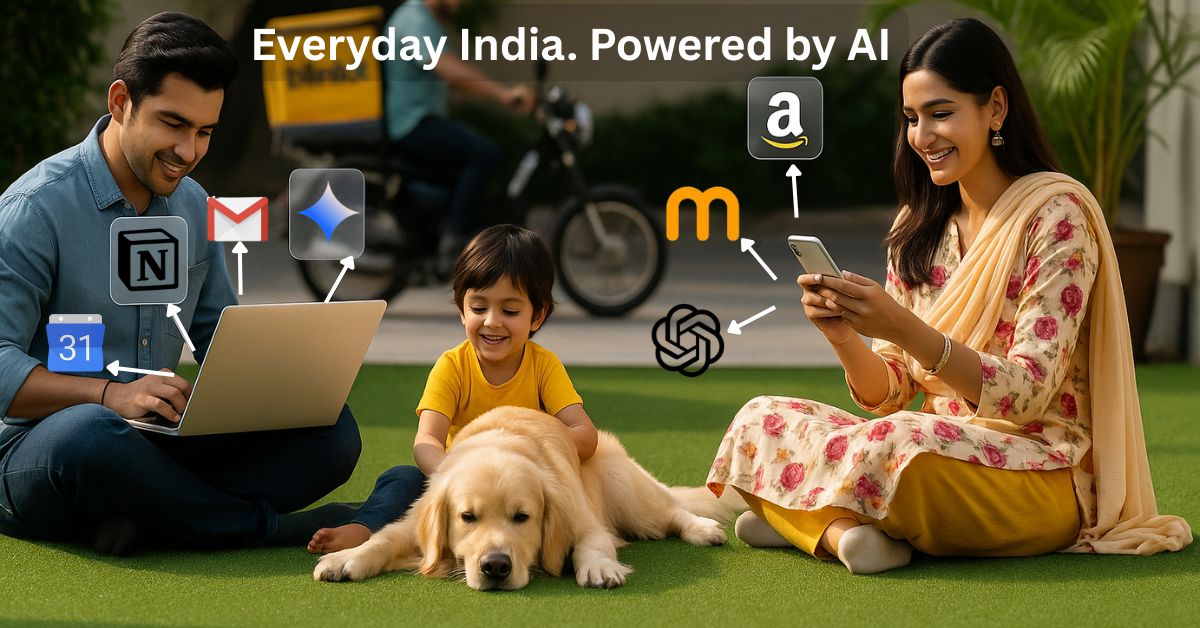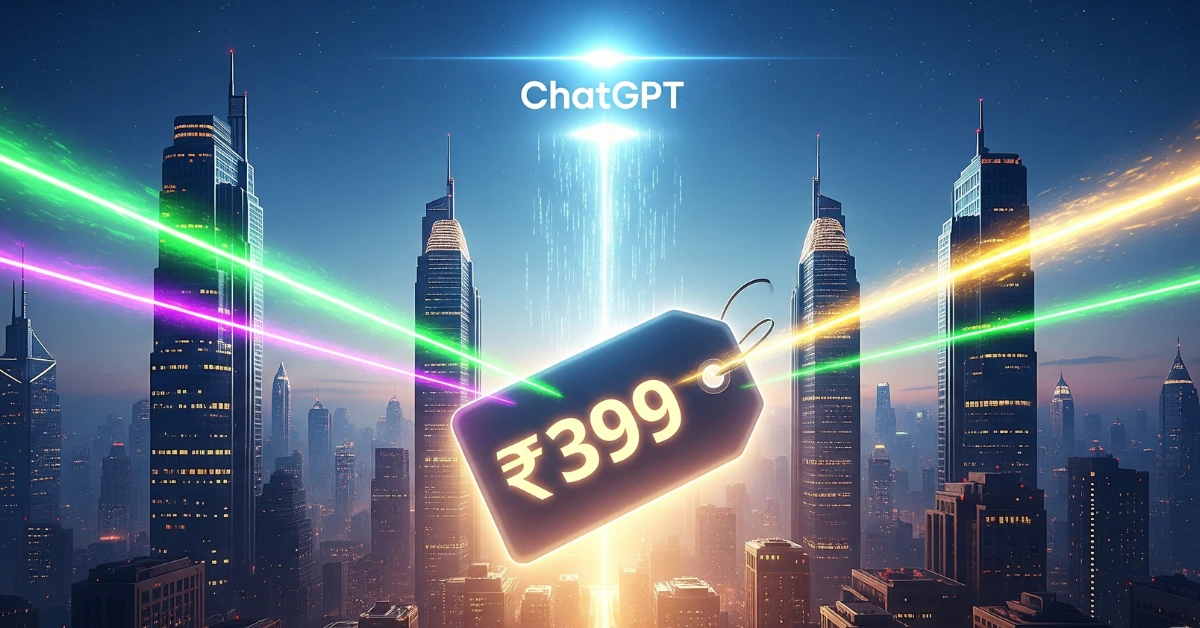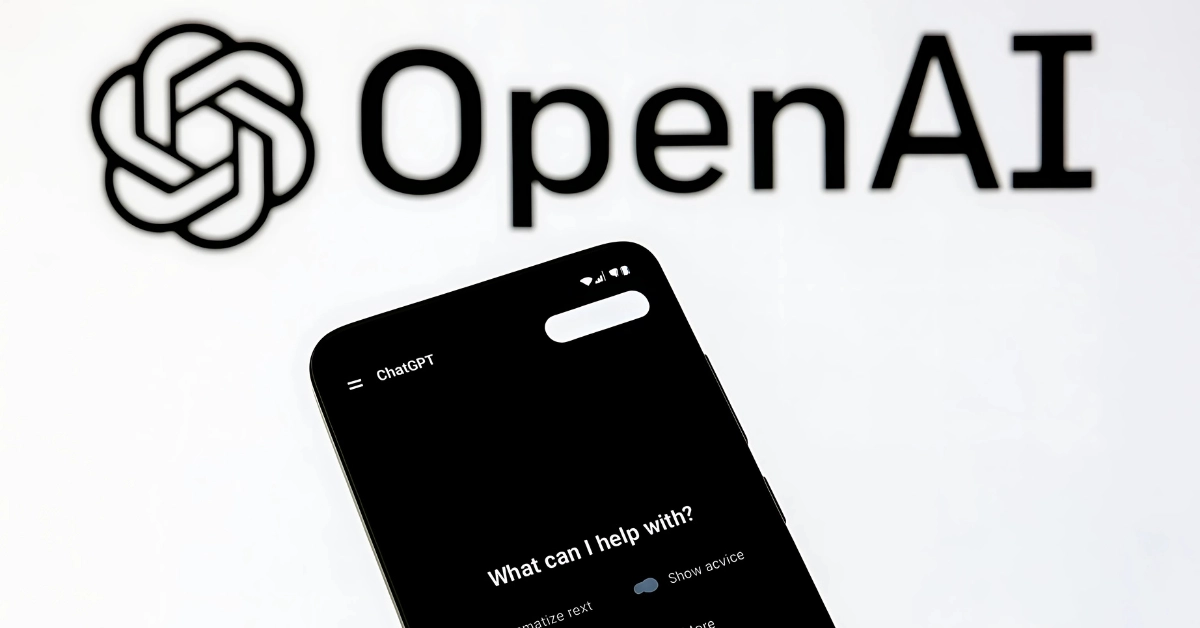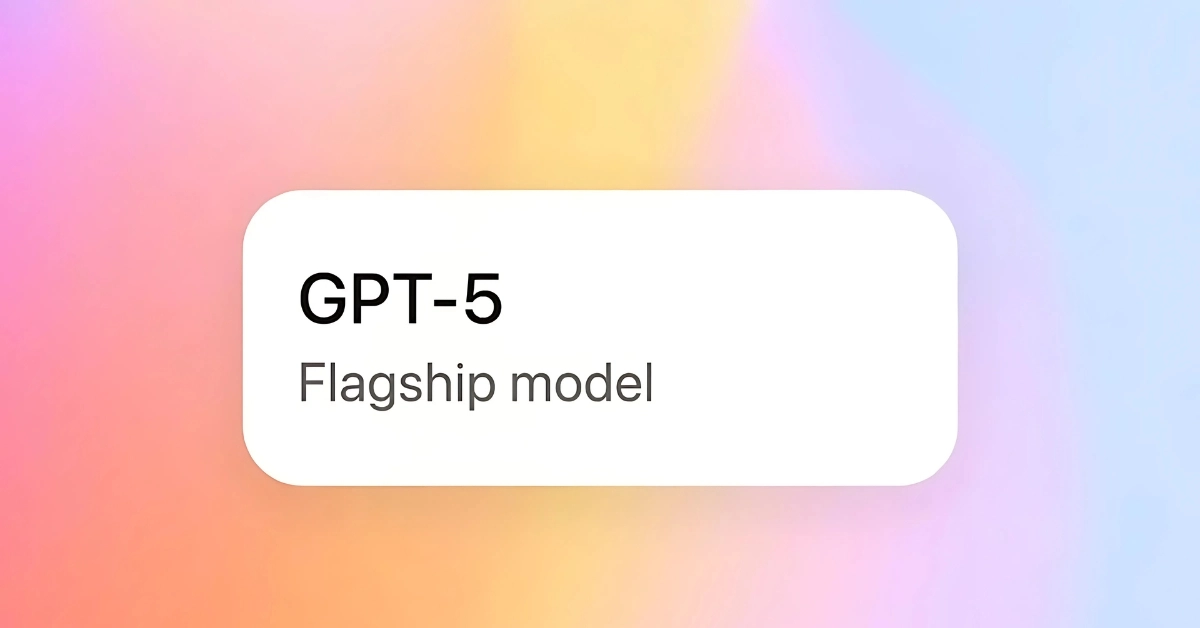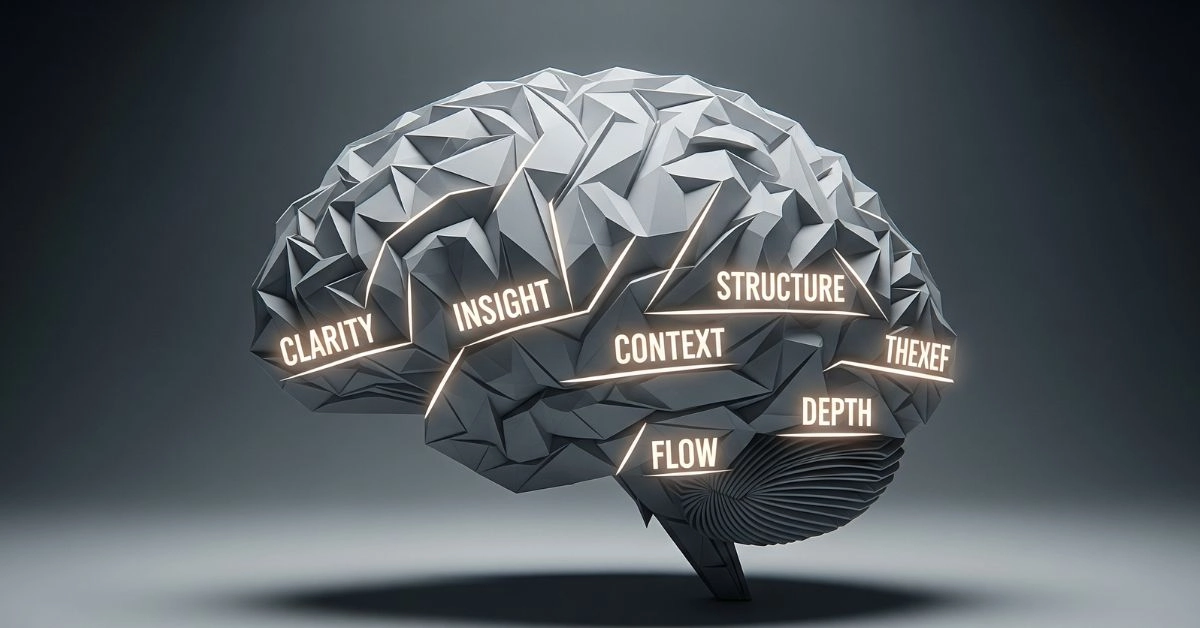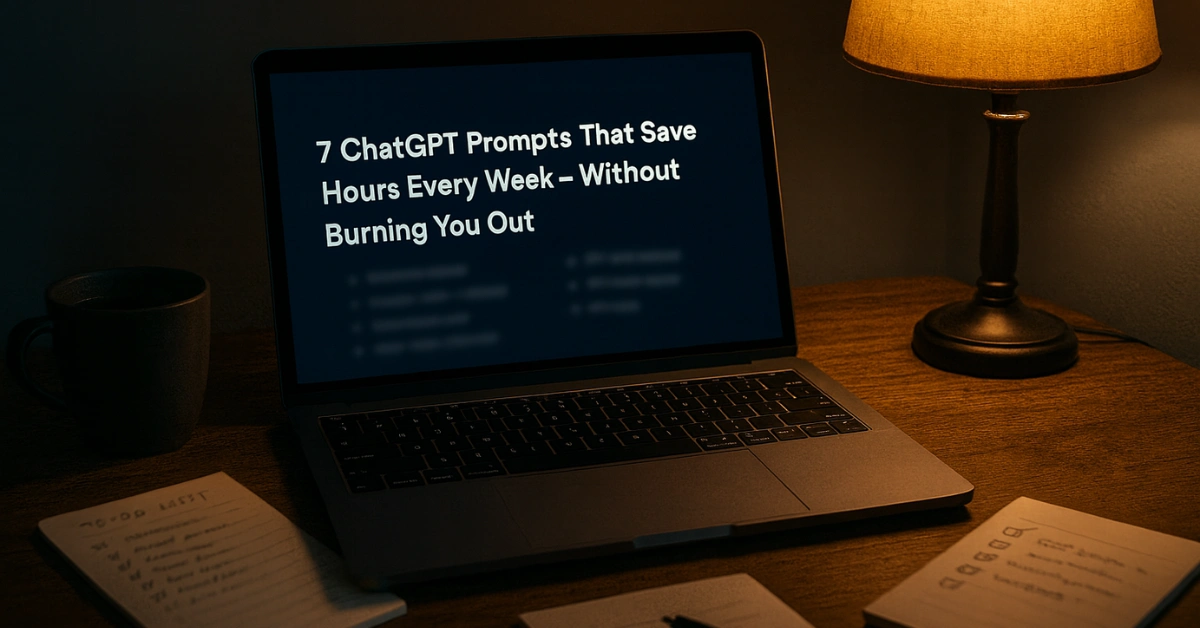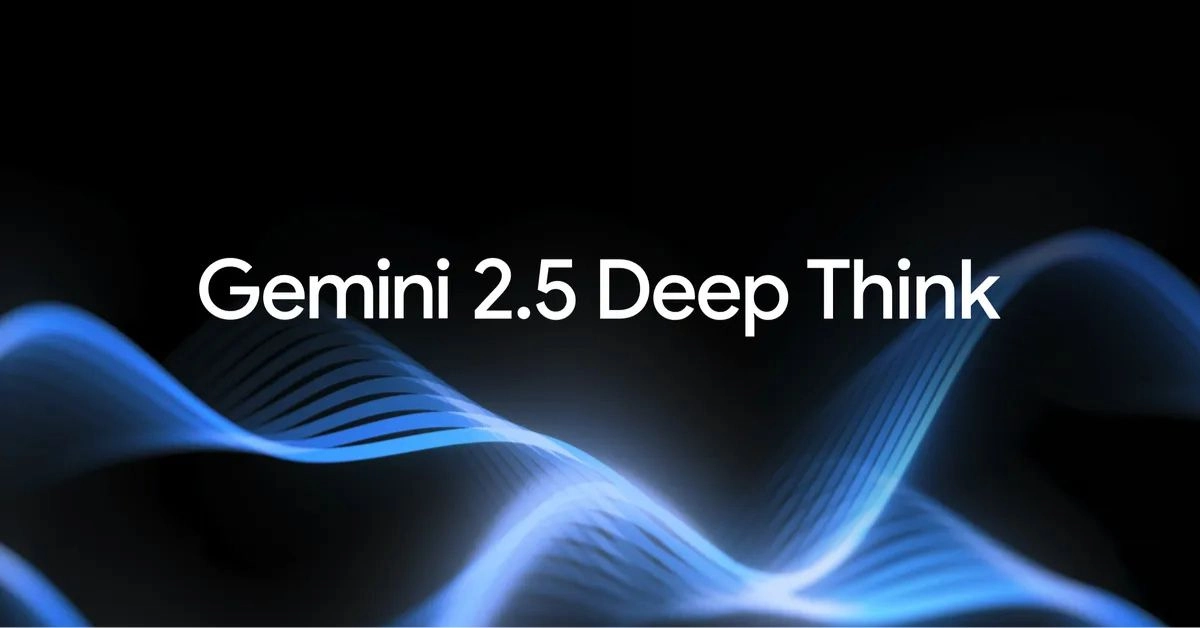Written by Mohit Singhania | Updated on: July 16, 2025
You didn’t download anything. You didn’t give permission. And yet, artificial intelligence is already part of your day. The real question now is simple: are you using it with intention, or is it quietly shaping your choices without you noticing?
In 2025, daily life in India is powered by AI in ways most people don’t stop to think about. From food delivery to payment apps, sleep trackers to school projects, these Ai tools are quietly running in the background while you’re focused on getting through the day.
Think about it. You ordered chai on Blinkit, but AI decided which seller showed up first, which brand felt more tempting, and even when the discount appeared on your screen. It didn’t feel like tech. It just worked.
This isn’t some science fiction story about robots replacing humans. It’s a grounded story about real people getting a little more done, a little more smoothly, because they discovered the right kind of help.
Whether it’s a freelancer in Indore sending smarter proposals, a mom in Jaipur managing school notes, or a student in Pune using flashcards that auto-update, AI has started to play a supportive role in every corner of daily life. No coding. No tech background. Just tools that actually reduce stress and free up time.
Today, AI helps you write emails, plan meals, detect fraud, and assist your child with homework. People who are moving ahead in 2025 aren’t hustling harder. They’re simply using smarter tools to carry the weight.
And here’s the best part. Most of the tools we’re about to explore are free, beginner-friendly, and already integrated into apps you use every day. You don’t have to buy expensive software or learn anything complicated. You just need to know what to try.
This guide isn’t about trends or hype. It’s about clarity. These tools are designed to blend into your routine and help you focus on what really matters. That’s the real advantage of using AI the right way.
Let’s begin where the pressure usually hits first: your work.
AI at Work: Tools That Make You Unbelievably Productive
Work in 2025 isn’t just fast. It’s non-stop. Back-to-back meetings, overflowing inboxes, and tasks that stack up before lunch.
For most Indian professionals, AI has quietly become the only way to stay ahead. Not because it’s fancy, but because it gets things off your plate before they become a problem.
Take Gmail. It finishes your sentences before you do. Zoom can transcribe your meetings in real time. Job descriptions are now written by bots, and your application might be filtered by one too.
If you’re freelancing in Indore, you no longer need to type every proposal from scratch. ChatGPT, Copy.ai, and Jasper can draft one in seconds. Got voice notes from a client? Fireflies.ai or Supernormal plug into Zoom and Google Meet, turning rambling conversations into clean, searchable notes — without you lifting a finger.
Managing a team? Notion AI helps summarize standups, build project plans, and flag things before they go wrong. And for HR folks, tools like Zoho Recruit can now sort résumés, suggest interview questions, and even schedule calls automatically.
Even students are waking up to this shift. Instead of wasting hours on grammar or formatting, many now use GrammarlyGO to polish essays or write cover letters that sound human. QuillBot helps rephrase long, clumsy paragraphs into crisp responses that actually land interviews.
None of this needs tech skills. Most of these tools work inside apps you already use — Google Docs, Notion, Gmail, Zoom. You click, and things happen.
They’re also free to try. You don’t need to spend on expensive subscriptions just to get started. Most have free versions that are good enough for daily use.
The smartest workers in 2025 aren’t doing more. They’re doing less of the stuff that drains them. And once you feel how much time that saves, there’s no going back.
Explore deeper:
- These 14 Free AI Coworkers Will Save You Hours Every Week in 2025
- I Spent ₹1999 on ChatGPT Plus — Was It Worth It?
AI in Daily Life: The Invisible Assistant You Didn’t Know You Had
Most people still think AI means robots or something meant for engineers. But in daily life, it’s helping you decide what to eat, reminding you to stay hydrated, fixing your grammar in chats, and even tracking how much you actually slept.
That’s not a prediction. That’s your Tuesday.
In 2025, AI apps in India have turned into quiet everyday helpers. They aren’t expensive upgrades or tech toys anymore. They’re part of your daily routine, quietly doing small things that make life easier without needing your attention.
If you’re a parent juggling online school and homework, tools like Khanmigo AI or Google Gemini Pro can now turn full chapters into simple summaries. They generate flashcards and practice questions, even voice-read difficult paragraphs in Hindi or Tamil. No more late-night panic or rushed tuition calls.
Trying to eat better? HealthifyMe’s AI meal plans now work with what you already eat. Whether your diet revolves around rajma chawal or idli-sambar, it gives portion suggestions based on your goals. And if you wear a Noise or Fire-Boltt smartwatch, it’s already checking your stress and sleep in the background. You don’t need to do anything. It just works.
Shopping looks different too. Apps like Meesho, CRED, and Blinkit use AI to reorder your feed based on what you like, where you live, and what time you usually buy. It feels natural, but it’s not random. The deals you see are made for you.
Even smart home gadgets are learning. Your AC adjusts to your evening routine. Some fans now speed up based on past usage and room temperature. These aren’t dramatic changes. Just small touches that make home feel smoother without effort.
This is what people miss about AI. It’s not flashy. It’s invisible. It makes life easier one task at a time, and most of us never even notice when it starts helping.
Explore deeper:
- How AI Is Powering the Apps You Already Use (Without Realizing)
- Is ChatGPT About to Replace Google Search?
AI for Creators: Turn Ideas Into Videos, Art, and Voice in Minutes
Being a creator in India used to mean working late nights, battling slow laptops, struggling with edits, and hoping your mic didn’t mess up halfway through recording.
That’s all changed now.
In 2025, AI tools have completely reshaped the creative process. You can write a script, generate a thumbnail, record a voiceover in Hindi, and subtitle your reel without needing a big setup or technical skills. And it doesn’t take more than twenty minutes.
It starts with the idea. You can write your script using ChatGPT or Notion AI. If you want it in Hinglish, that’s a one-click change. For voiceovers, ElevenLabs or Murf can read your script in your own voice or regional accent. You can choose Hindi, Tamil, Marathi, or stick with English.
If you don’t have a camera, that’s not a problem either. Tools like Runway ML and Pictory can turn your script into a video using stock footage or animated avatars. If you’re posting to Instagram, Canva’s AI tools can build a full carousel, write captions, and even suggest the best time to post.
Thumbnails, too, have become easier. Instead of layering images in Photoshop, you just describe what you want. Something like “angry gamer with fire in the background,” and Thumbnail AI or Leonardo will give you five bold options in seconds.
For audio and video creators, Descript changes the game. It lets you edit sound by editing text. Delete a line in the transcript, and it removes that part of the audio automatically. If your recording sounds off, Adobe Podcast Enhance can clean up the quality with one upload.
You don’t need to be a tech person. You just need an idea. The tools will handle the rest.
This isn’t about shortcuts. It’s about giving solo creators the kind of power that used to need a whole team. If you have something to say and no budget to say it with, AI makes sure you can still show up.
Explore deeper:
- Google Veo 3 Is Now in India: Make Short AI Videos with Voice, Music, and Pure Imagination
- ChatGPT Image Editing Mistakes: 8 Common Errors That Are Wrecking Your AI Images (And How to Fix Them)
AI for Students: Study Smarter, Not Just Harder
No generation of Indian students has had it tougher than the ones in 2025. Everything is online. Competition is everywhere. Coaching fees are rising faster than you can keep up. And the pressure never really stops.
This is where AI starts to matter.
It doesn’t replace hard work. It just makes sure your effort actually counts.
Let’s say you’re studying for NEET or JEE. You can drop a full science chapter into ChatGPT and ask it to break things down into bullet points. You can also ask it to explain tricky parts in Hindi or help you summarise NCERT notes in your own words. Gemini Pro, which is currently free for verified Indian students until September 15, does all of this and even cites the sources when needed.
If you’re preparing for competitive exams, AI tools like Khanmigo, Quizgecko, and StudyAI generate flashcards, mock tests, and topic-based questions. You no longer need to rely on endless PDFs or old question banks. You can focus on weak areas and revise in your own style.
For college students, these tools are becoming essential. GrammarlyGO helps you write SOPs and internship applications that actually sound like you wrote them. Notion AI can turn a messy lecture recording into neat, searchable notes. And if you’re stuck on a project or research paper, tools like SlidesAI and Scite.ai help build presentations and even format your references correctly.
You don’t have to study longer to get better results. You just have to study smarter. AI helps you spend less time formatting, guessing, or getting stuck — and more time understanding.
Many students say using AI gives them a sense of confidence. It’s not that the stress disappears. It’s that you finally feel like you’re not doing it alone.
AI doesn’t sleep. It doesn’t get tired. And when used right, it becomes the study partner you always needed but never had.
Explore deeper:
- Top Free AI Tools Indian Students Are Actually Using to Crack Exams in 2025
- How to Master NotebookLM in 2025
- Gemini 2.5 Pro, Veo 3, NotebookLM Now Free for Indian Students
AI Risks & Ethics: What You Need to Watch Out For
AI is exciting, but let’s not pretend it’s perfect. Like any powerful tool, it can help or harm — and in 2025, the risks are getting more personal than ever.
You’ve probably seen those fake voiceovers on Instagram. Some of them sound too real. You might have even clicked on an ad promising “ChatGPT money hacks” or “AI trading bots.” But the danger isn’t always that loud.
Sometimes, it’s the app you downloaded last week. The one that quietly grabbed your contacts and stored your data without asking. Or the AI résumé builder that uploaded your personal documents to a foreign server. No warning. No way to delete.
And the scams are getting smarter. A few weeks ago, thousands of job seekers in Noida were tricked into sharing Aadhaar and bank details with a fake “AI Interview Assistant” that promised instant hiring. It looked legit. It wasn’t.
AI deepfakes, cloned voices, shady chatbots — this is now part of the internet experience. There are bots pretending to be customer support, and even chat tools giving mental health advice with no qualifications or oversight. These aren’t rare cases. They’re showing up on mainstream platforms.
Even trusted apps have gray areas. If you’re using voice cloning tools, who owns that voice? If your child is using an educational chatbot, where does their data go? Most users never read the terms. But the risks don’t care.
That’s why awareness matters more than ever. The rule is simple. If something feels too fast, too flashy, or asks for too much access, slow down. Legit tools will explain what they collect. Scammy ones hide it behind features.
Don’t assume popular means safe. Always check reviews. Stick to official app stores. And look for tools that give you control over your data and usage.
AI is meant to help. But like any assistant, it needs supervision. The smarter it gets, the smarter you need to be too.
Explore deeper:
- How to Spot a Fake AI Tool and Avoid Getting Scammed
- ChatGPT as Your Therapist? Stanford Study Says You Could Be Making a Life-Threatening Mistake
- MIT Brain Study Says ChatGPT Is Making Us Dumber — Indian Students, Beware
Final Thoughts
AI isn’t the future anymore. It’s already here. Not in some flashy, dramatic way, but woven quietly into the apps and routines we rely on every day.
Whether you’re trying to manage deadlines, study for an exam, run a household, or grow your personal brand — AI tools in daily life in India are becoming the support system we didn’t even know we needed.
This shift isn’t about using more tech. It’s about choosing better tools. The ones that give you back your time, lower your stress, and actually fit into your routine without overwhelming you.
And here’s the most important part. You don’t need to be an expert. You don’t need to master everything. You just need to start.
Try things. Explore. Ask questions. Find what works for your goals and your pace. Because in 2025, the biggest advantage isn’t knowing everything. It’s knowing what to use, when to trust it, and where to draw the line.
At TechMasala, we’re building India’s most practical guide to AI — not for coders, but for regular people. This is just the beginning. You’ll find plenty of deep-dive guides linked across this article. Use them. Save them. Share them with someone who needs the help.
And remember, the smartest users this year aren’t working harder. They’re just using the right kind of help.

